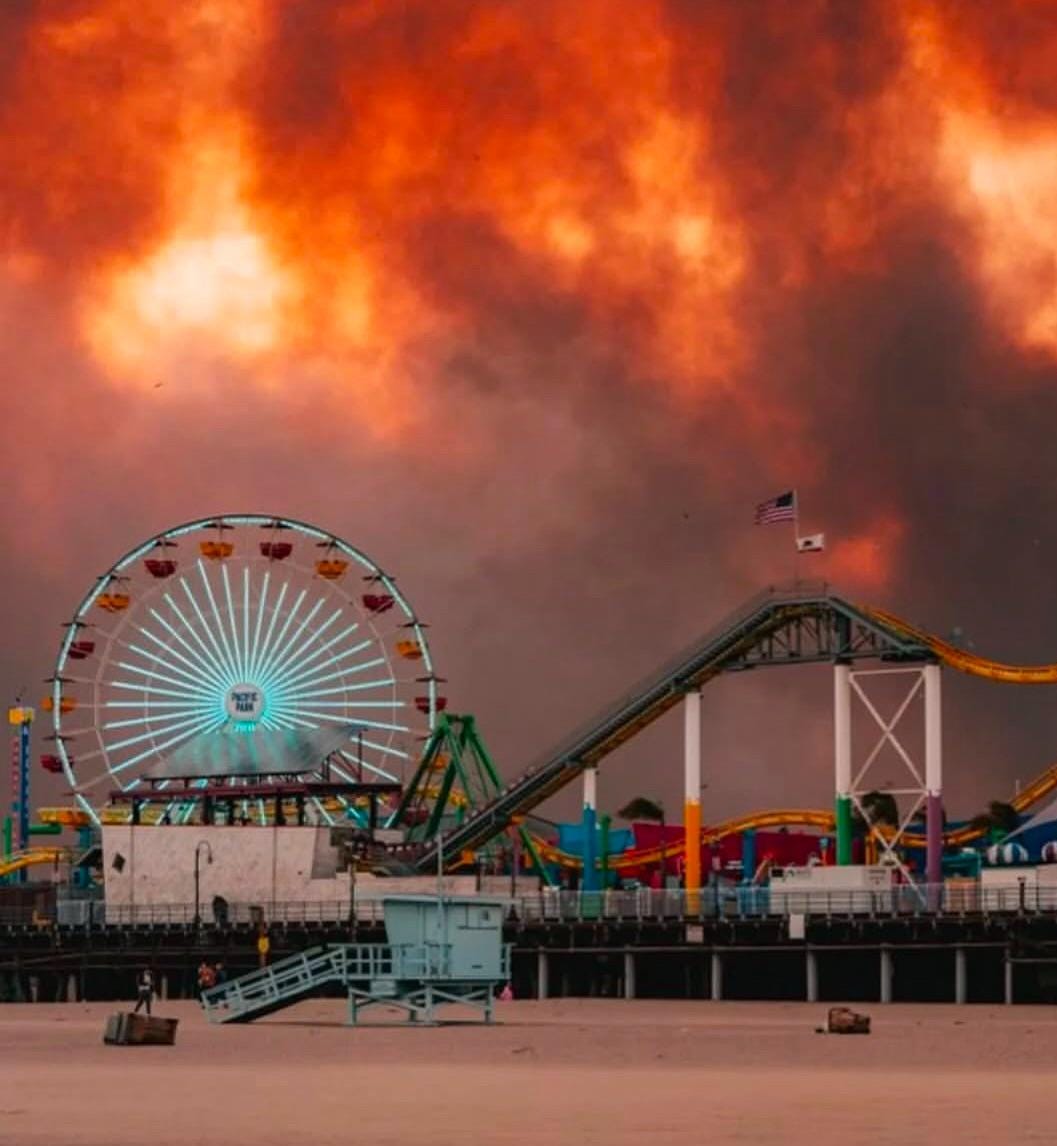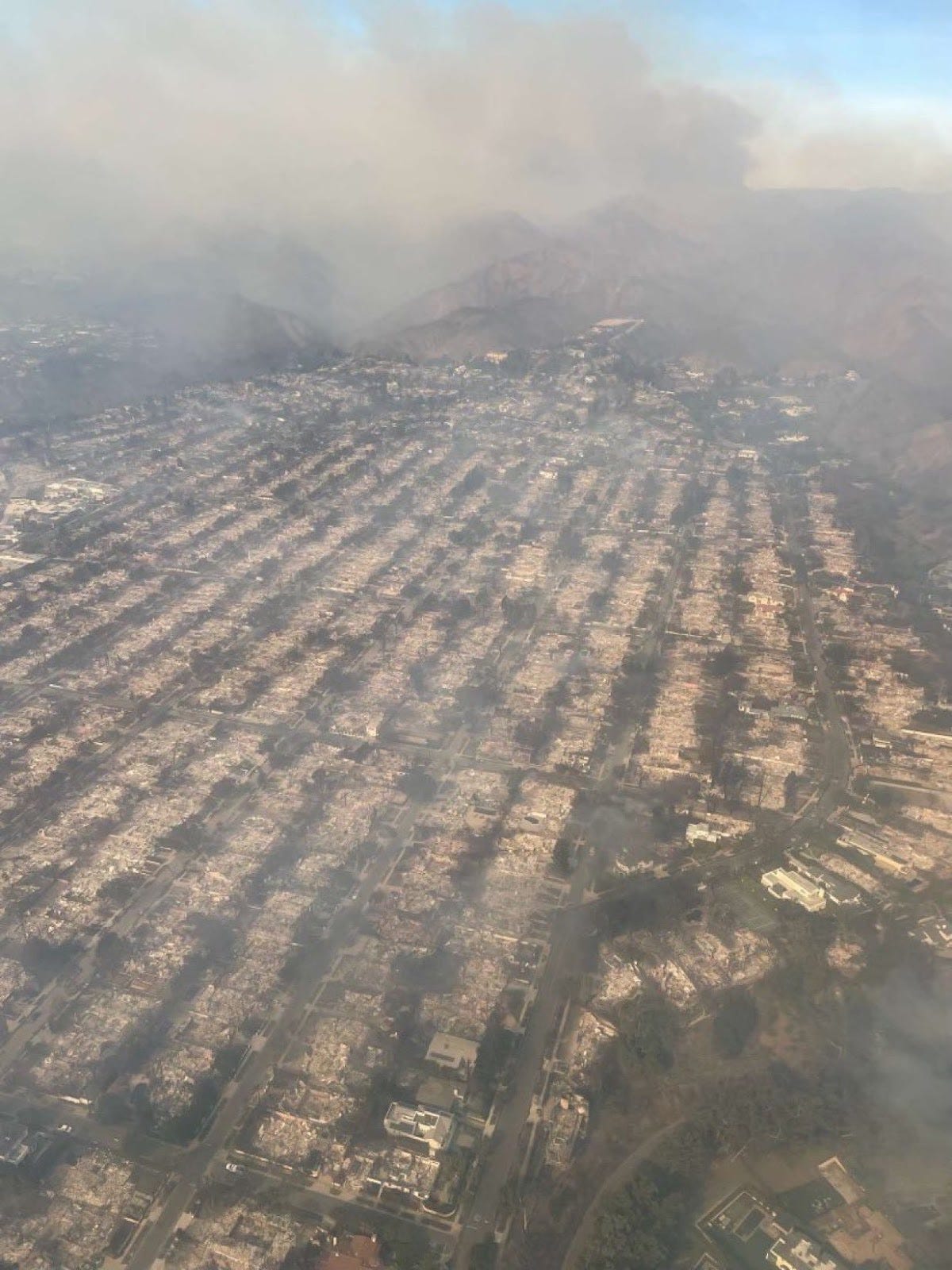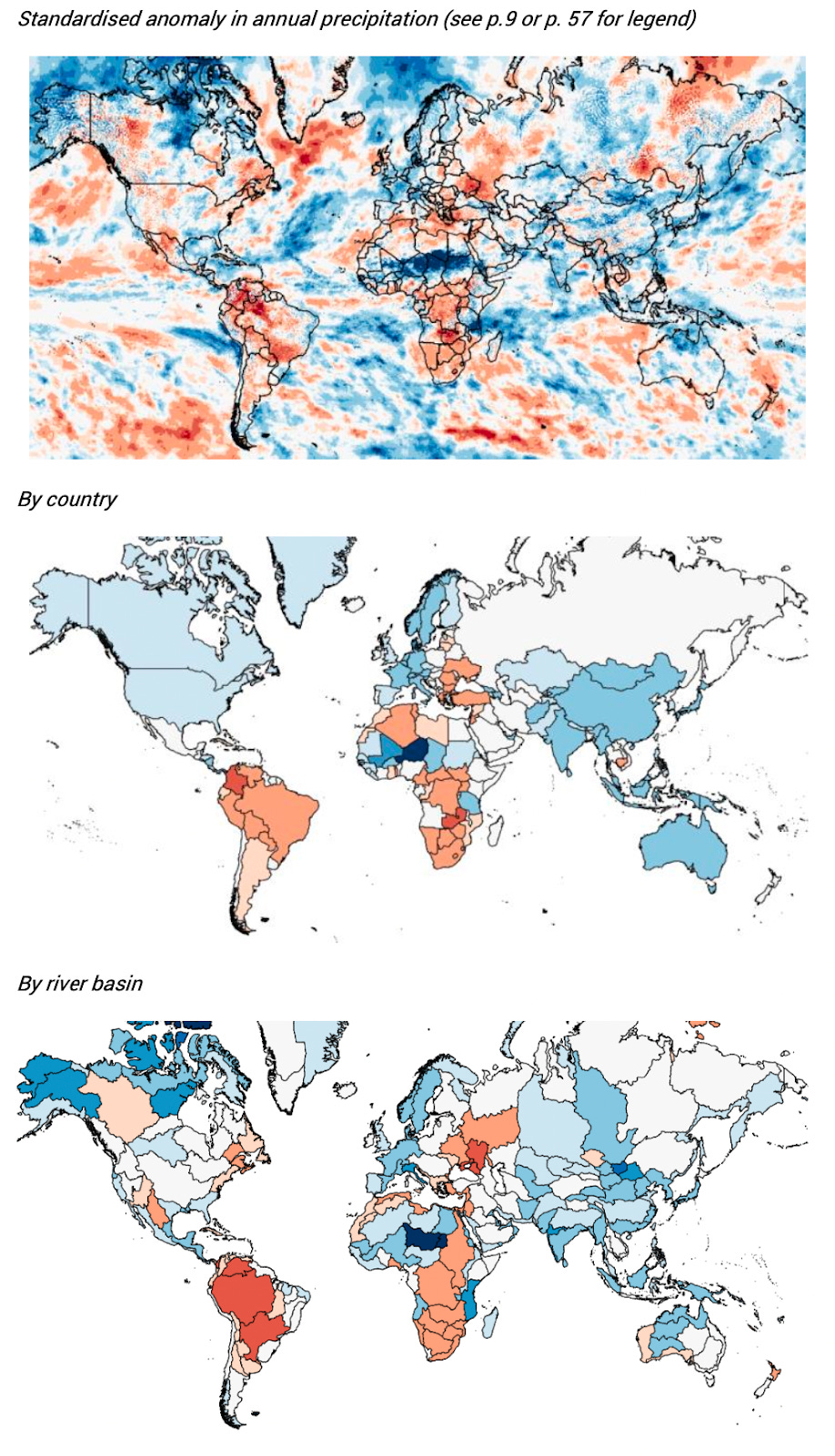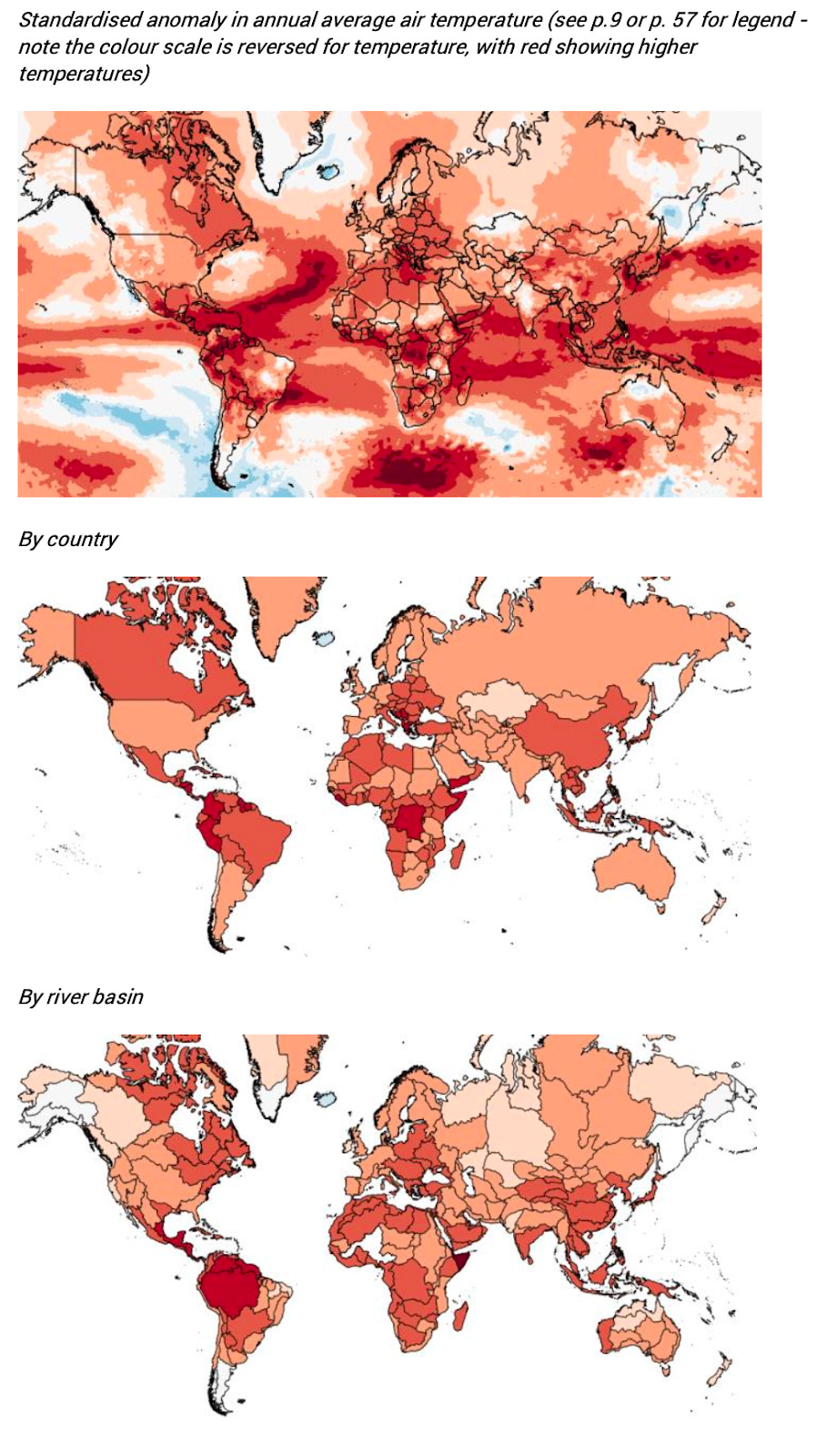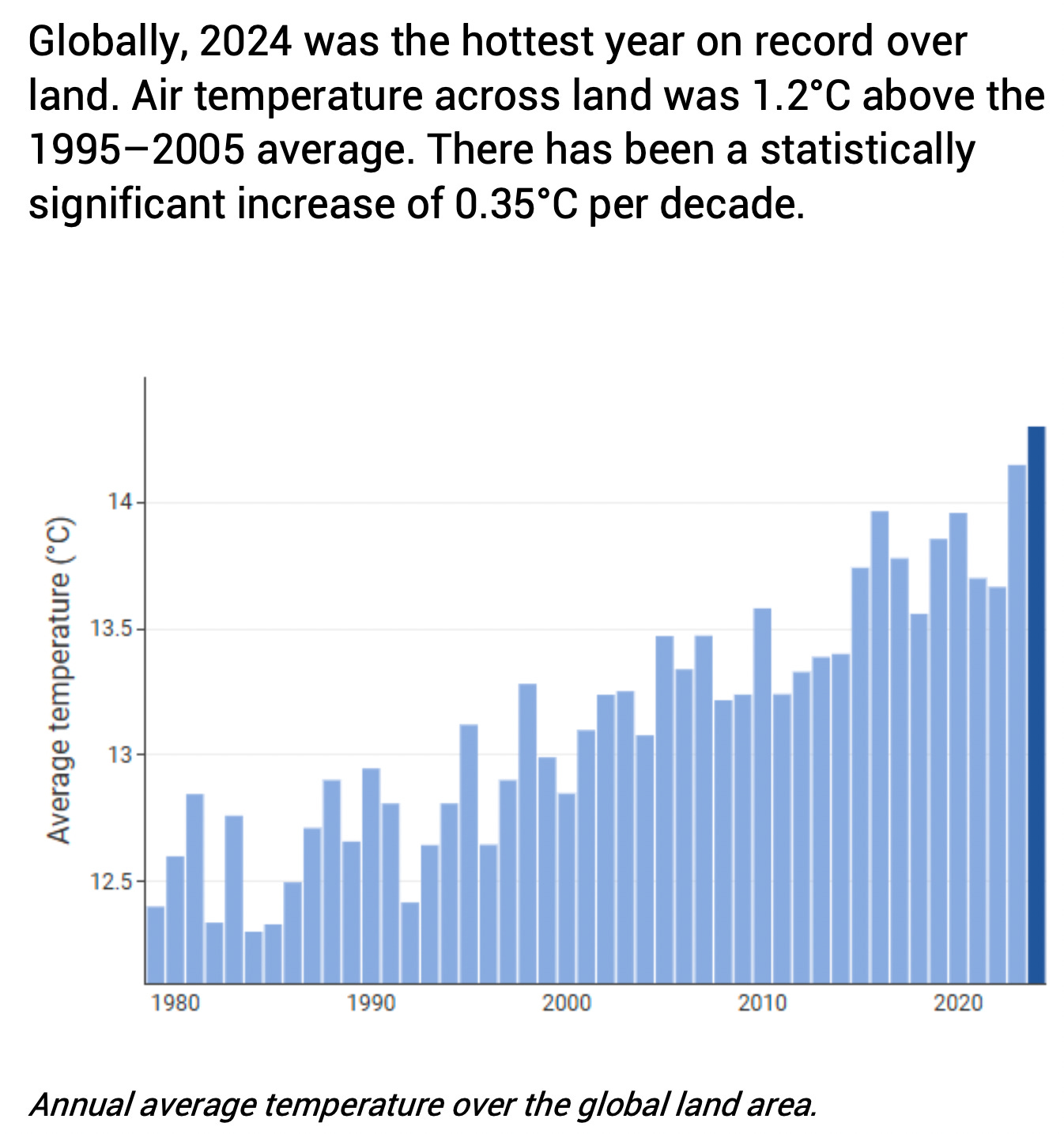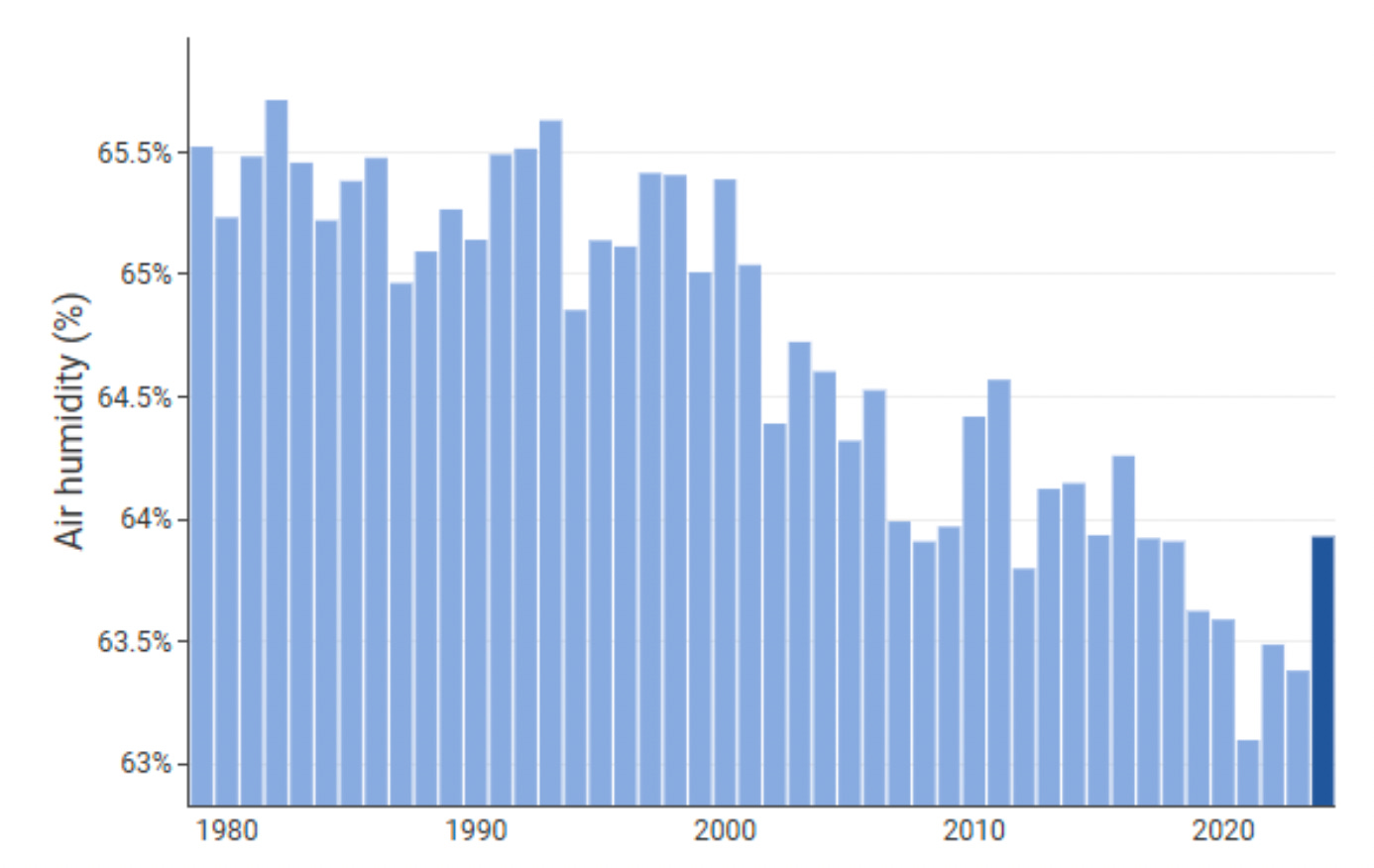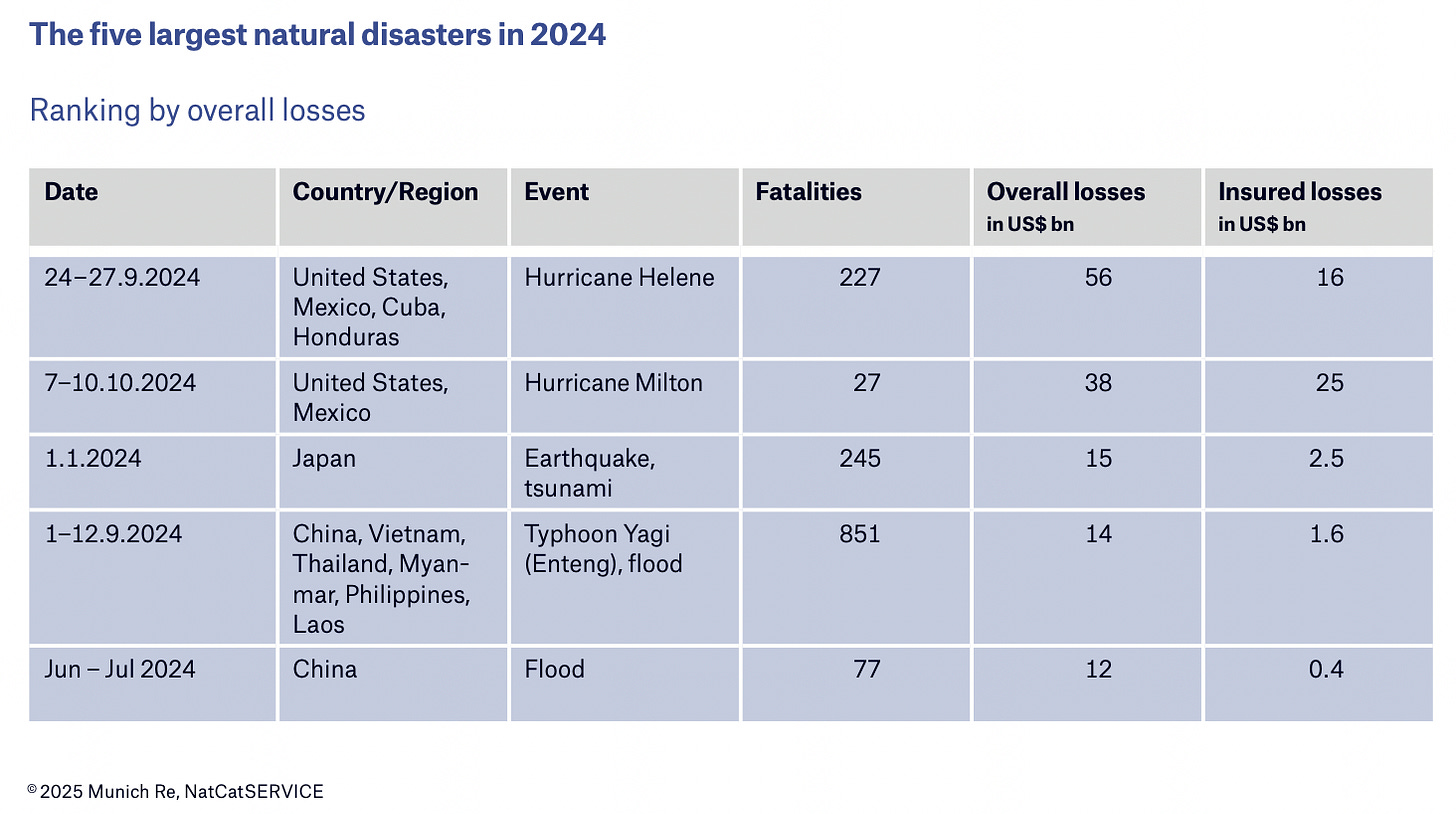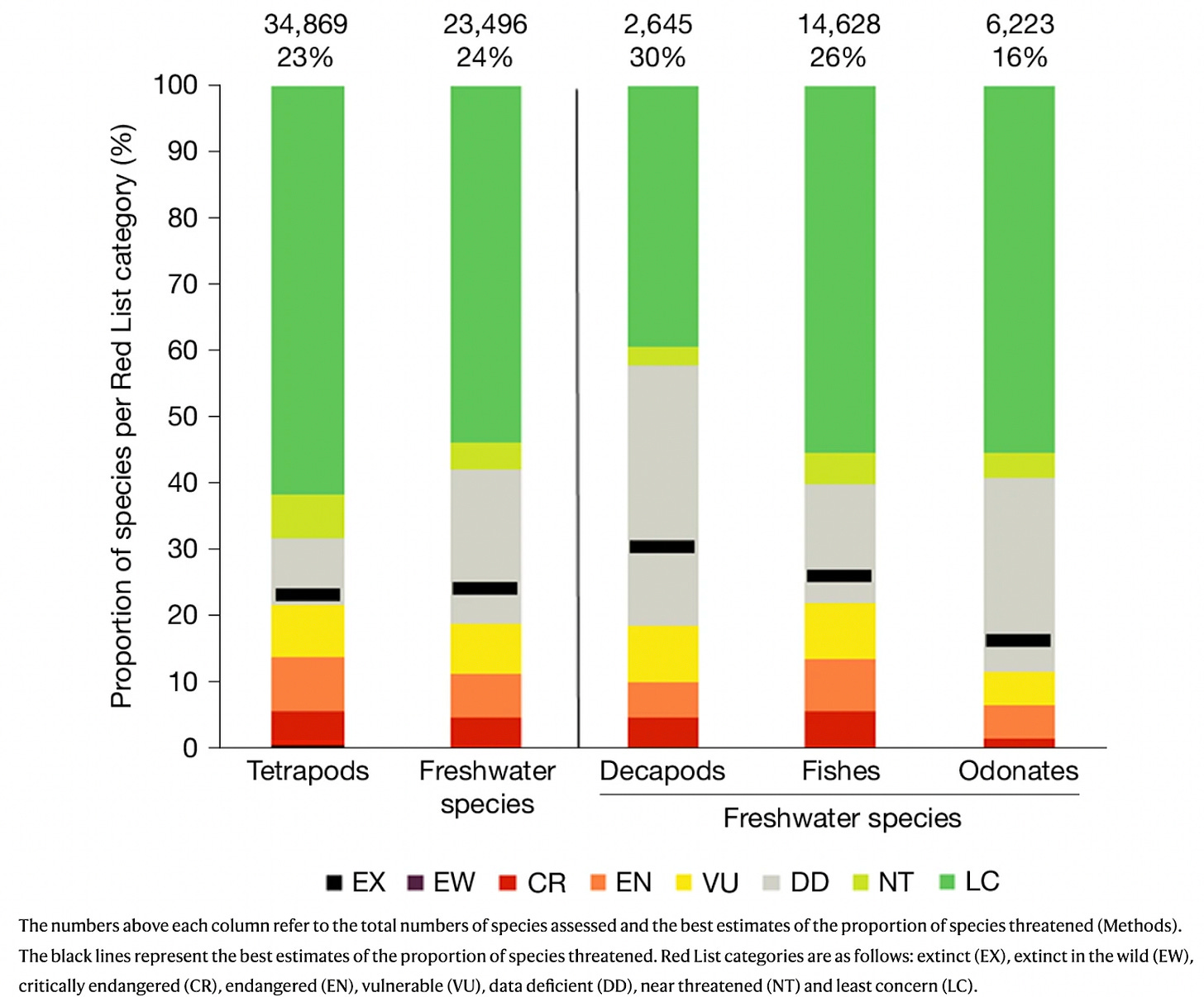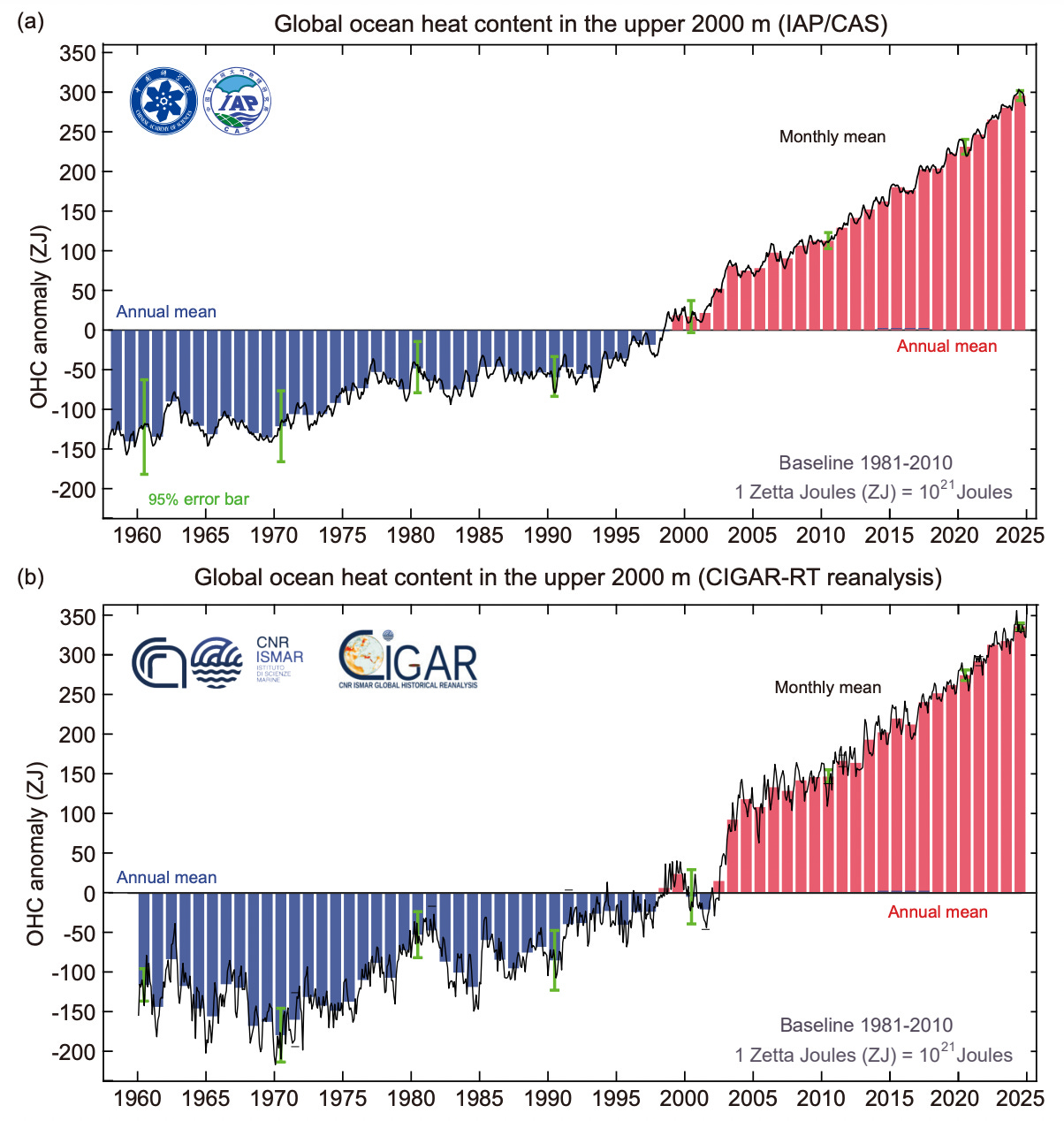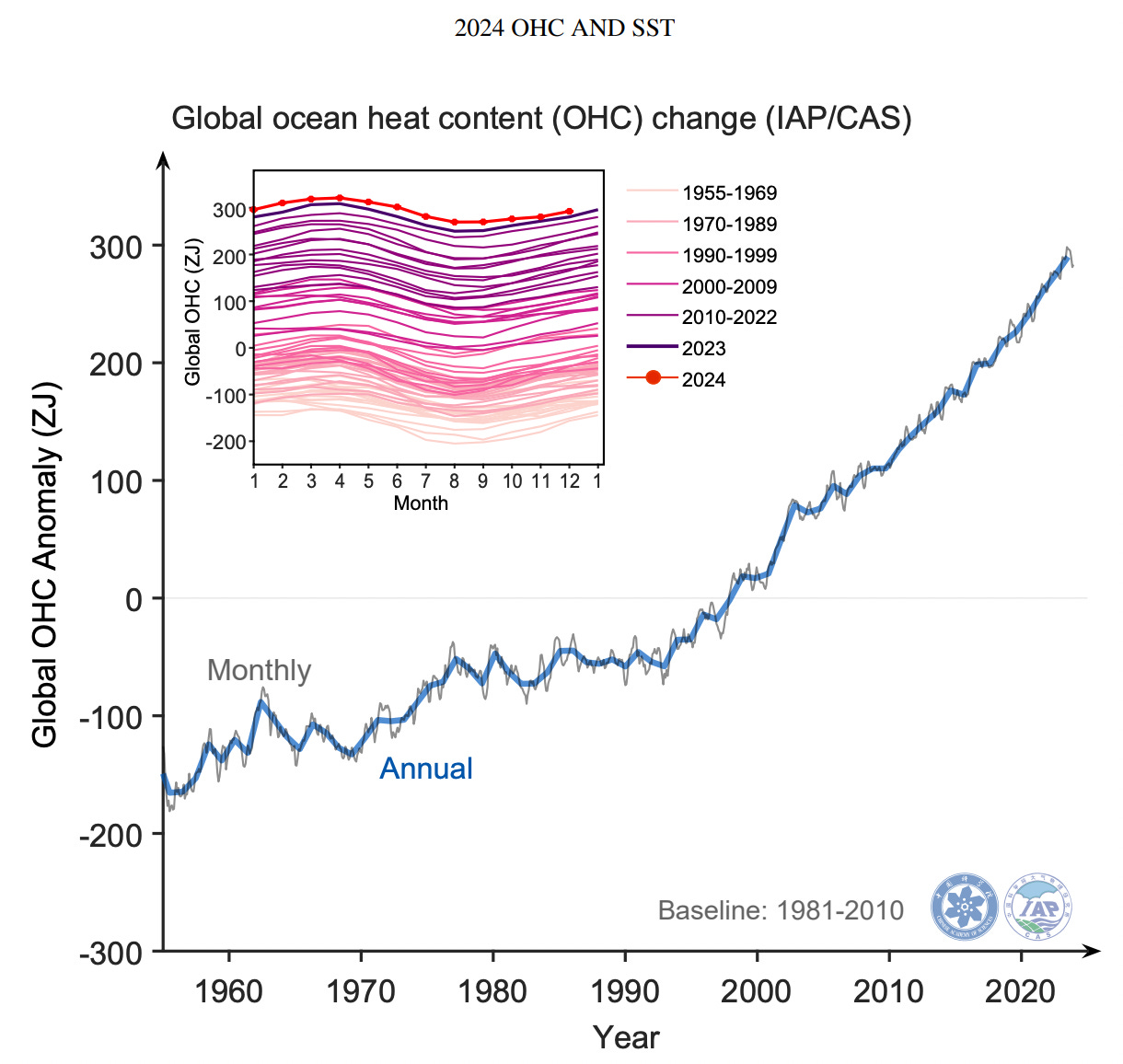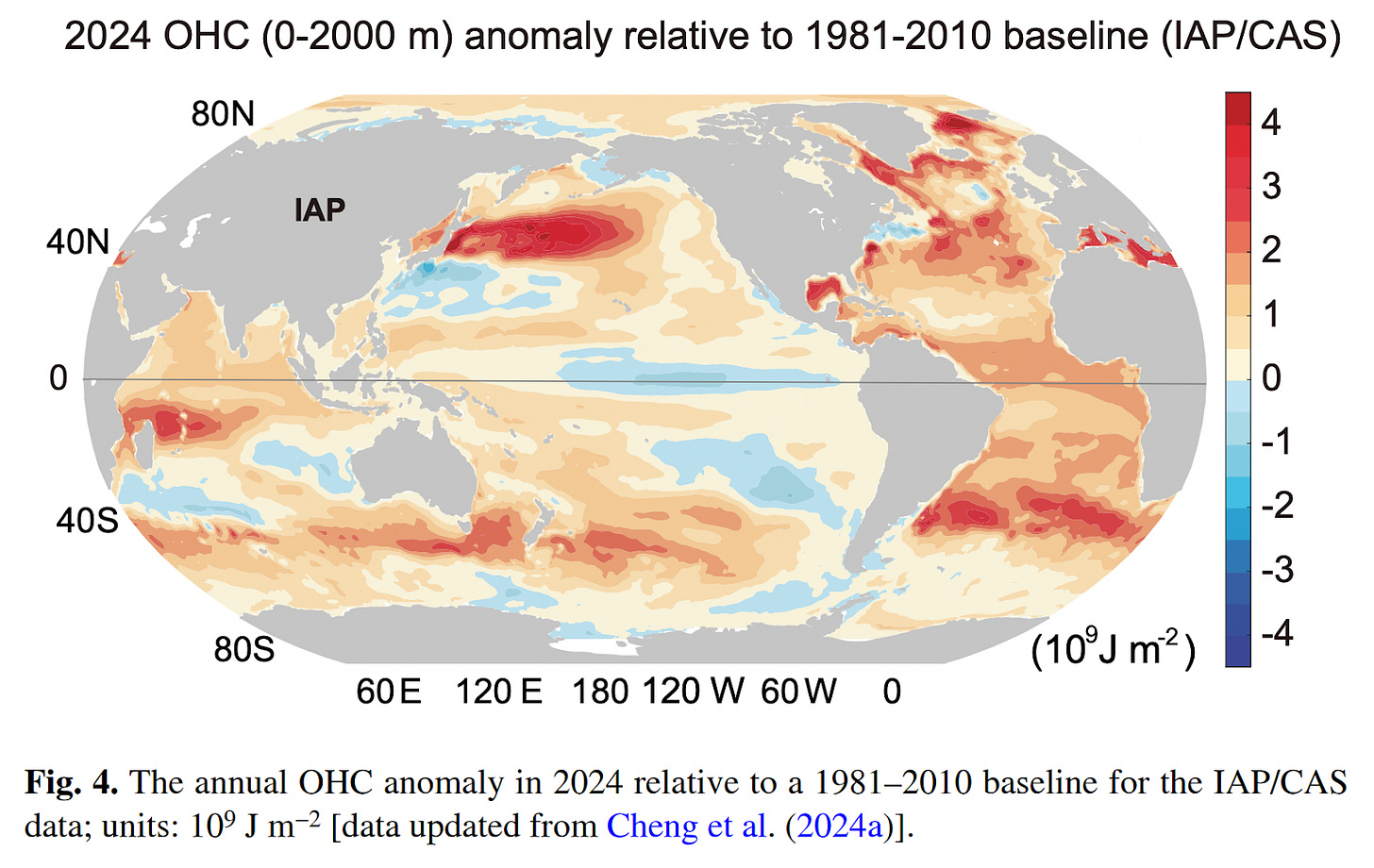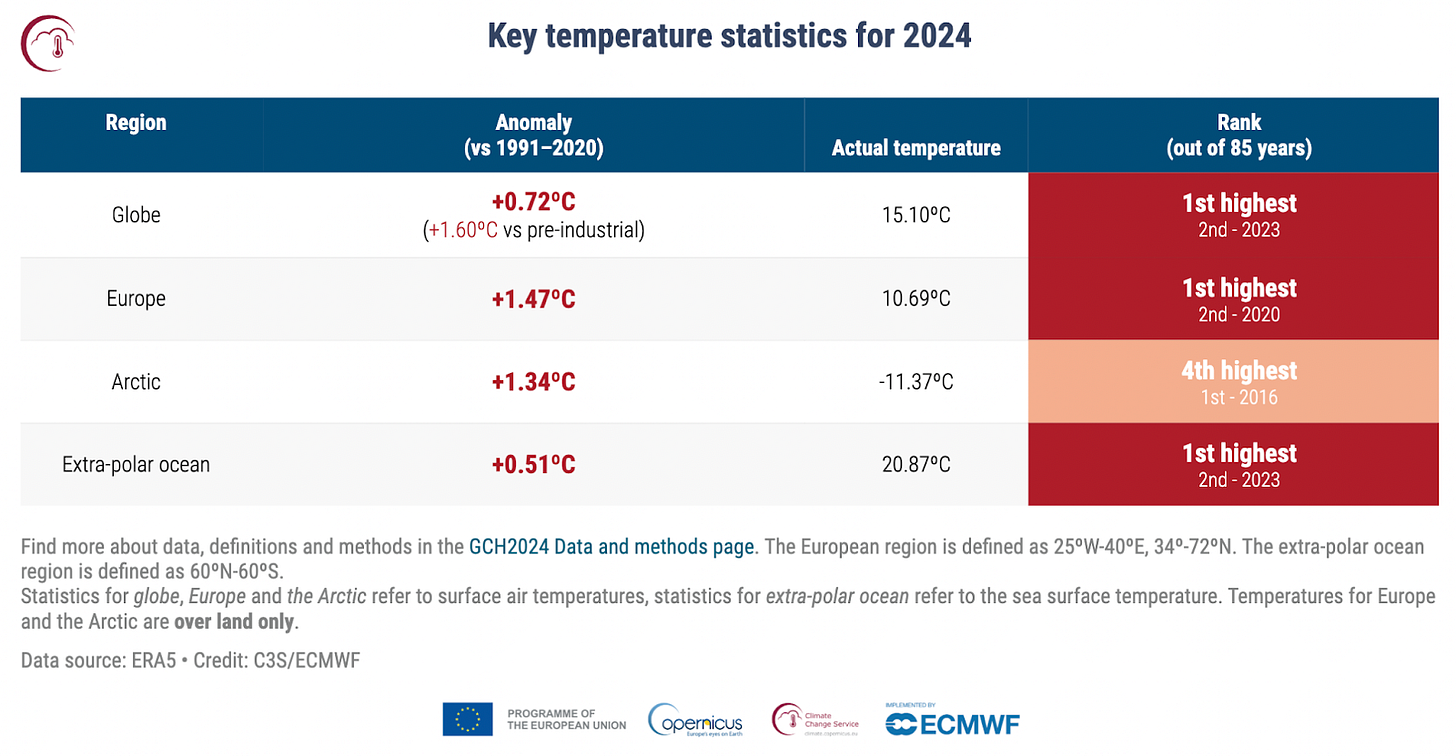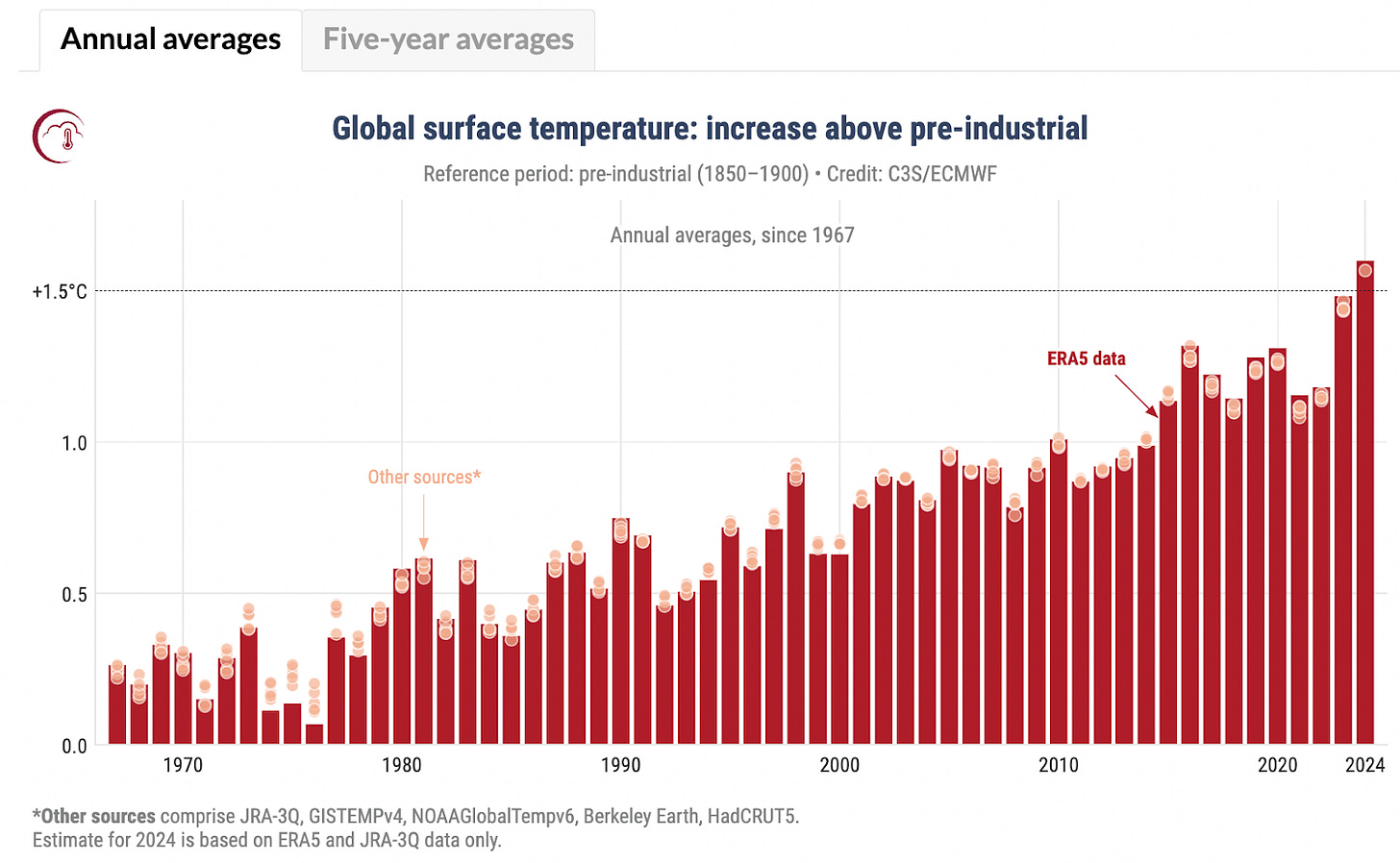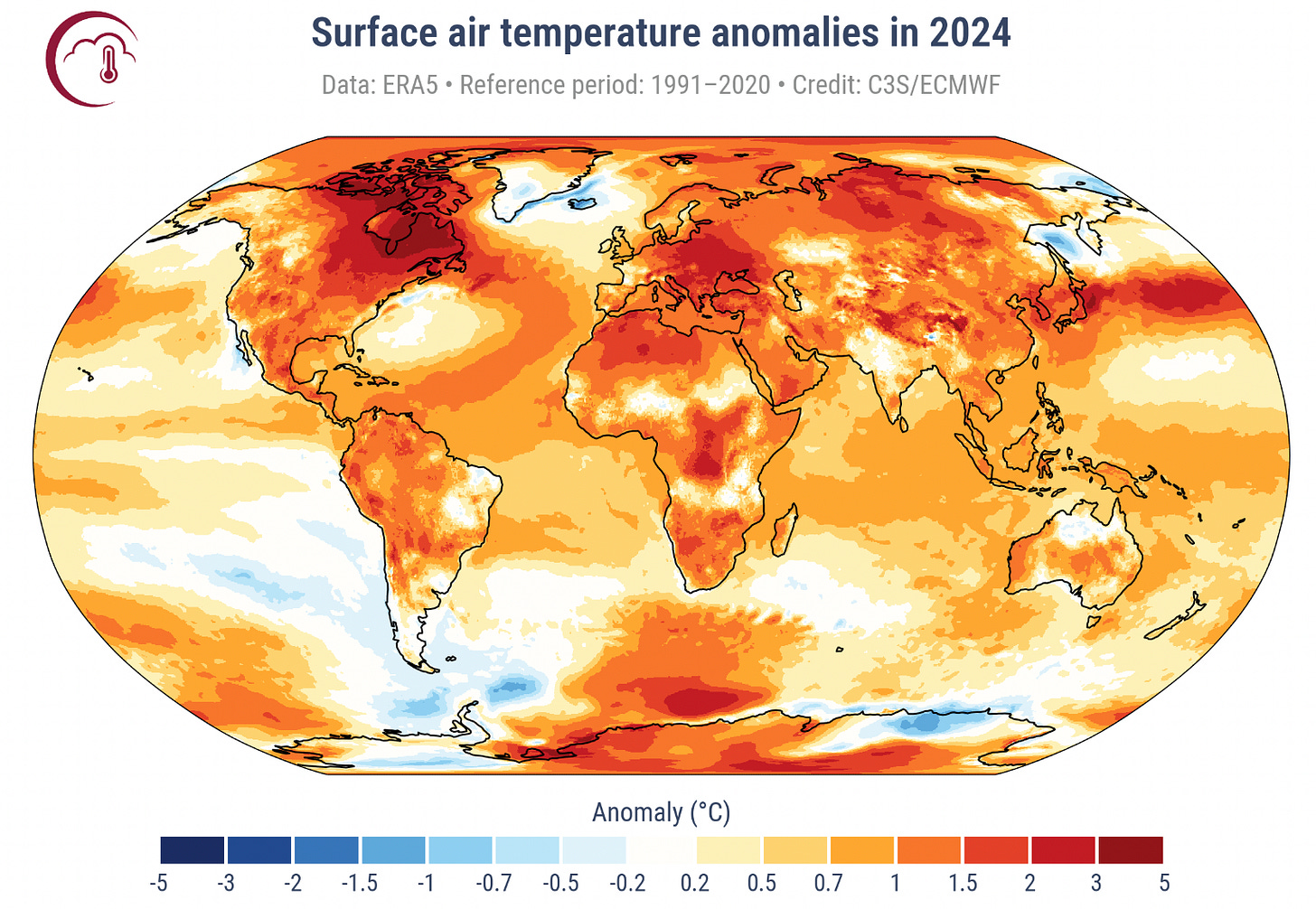Last Week in Collapse: January 5-11, 2025
Wildfires wreak havoc on LA, climate records for 2024 spell environmental catastrophe, bird flu, government & corporate debt bubbles grow, manifold anxieties, and more...
Last Week in Collapse: January 5-11, 2025
This is the 159th weekly newsletter. You can find the December 29, 2024 — January 4, 2025 edition here if you missed it last week. Click here if you want to check out the Reddit archive of all LWIC posts from 2024, with micro-summaries. Thank you for subscribing to the Substack.
——————————
A series of Los Angeles fires has wrought destruction to the region, torching 10,000+ homes and killing at least 16. The fires are among the most destructive in LA’s history—and probably the most costly in terms of monetary damage, with at least $55B worth of destruction (other sources say $150B+ of damage). Over 900 prisoners were recruited to fight the fires, paid about $10 per day. Many of the blazes are still uncontained. This photo essay captures some of the destruction & panic from the LA wildfires.
The 58-page Global Water Monitor Report for 2024 was released last week, and it details the current state of earth’s water cycle, along with risks, challenges, and statistics. Snapshots of particular hydrological disasters (usually floods) in particular regions are also provided. The outlook for 2025 predicts a worse hydrological year than 2024.
“Several countries {in 2024} recorded their highest annual precipitation totals since 1979….A total of 23 countries recorded their highest annual daily maximum rainfall in 2024….Eight countries recorded record-low annual NDVI {normalised vegetation difference index}: Zimbabwe, Zambia and Malawi…Cambodia and Lao{s}…Morocco…Belize…and Iceland….Fifteen countries recorded record-low annual surface water extent in 2024….Thirty-one countries recorded record-high annual surface water extent….Global average terrestrial water storage continued its apparent long-term decline, with an average value of 31 mm below the 2002–2005 baseline. This represents a significant declining trend of 19 mm per decade….” -selections from the report
In Ghana, a large secondhand market was burned, destroying the livelihood of some 30,000 small-scale entrepreneurs. The cause is still unknown. In Tibet, a 7.1 earthquake on Tuesday leveled 1,000+ homes and killed 125+ people.
China is expected to grow coal production this year by 1.5% to meet rising energy demand. Meanwhile, the EU is generating far less wind power than they need, and not expected to increase production to meet 2030 targets. And Phoenix, Arizona, currently at 141 days without rain, is approaching its all-time record: 160 days.
A report claims that natural disasters last year resulted in $320B worth of damage worldwide—about a third of which was insured. It is also the highest cost on record (for now). Deaths from natural disasters, however, were “significantly fewer than the average,” measuring about 11,000.
The UK felt its coldest January night in 15 years, when temperatures in Scotland dropped to -18.9 °C (-2 °F) early on Saturday morning. Several heat records were set across Oceania, and in Brazil. New snowfall record in southern Norway. In China, glaciers are melting faster than they, and their implications, can be studied.
A slow-motion water crisis is brewing in Afghanistan. In the UK, bees are beginning hibernation much later than usual, a result of warm weather. In South Africa, lightning storms killed eleven individuals. And a Nature article claims that about 25% of “freshwater fauna {are} threatened with extinction.”
A study published several weeks ago in Geochemistry, Geophysics, Geosystems claims that, as the Antarctic ice sheets melt, downward pressure is decreased on subglacial volcanoes—thus increasing volcanic eruptions underneath, which hasten the melting of glaciers even more. Scientists say this process, while alarming, will not happen overnight, but occur on the scale of many decades or centuries.
A round-up of environmental disasters was published on Saturday in Advances in Atmospheric Sciences. Several national weather agencies, like those in the UK and Japan, say [earth breached 1.5 °C of warming in 2024, and that it was the hottest year on record. NASA and NOAA both claim, at the moment anyway, that earth’s warming has not quite hit 1.5 °C, but they concede that it was the warmest year on record for the United States and for the planet, and “likely the hottest for the planet in 125,000 years.” The ocean also hit record high temperatures, according to another study in Advances in Atmospheric Sciences published on Friday.
The EU’s Copernicus Climate Change Service also confirmed the record-breaking figures for 2024. They also claim that 2024 saw the largest concentration of water vapor in the air on record. The full report is quite alarming, and worth skimming if only for the graphics.
Keep reading with a 7-day free trial
Subscribe to Last Week in Collapse to keep reading this post and get 7 days of free access to the full post archives.




